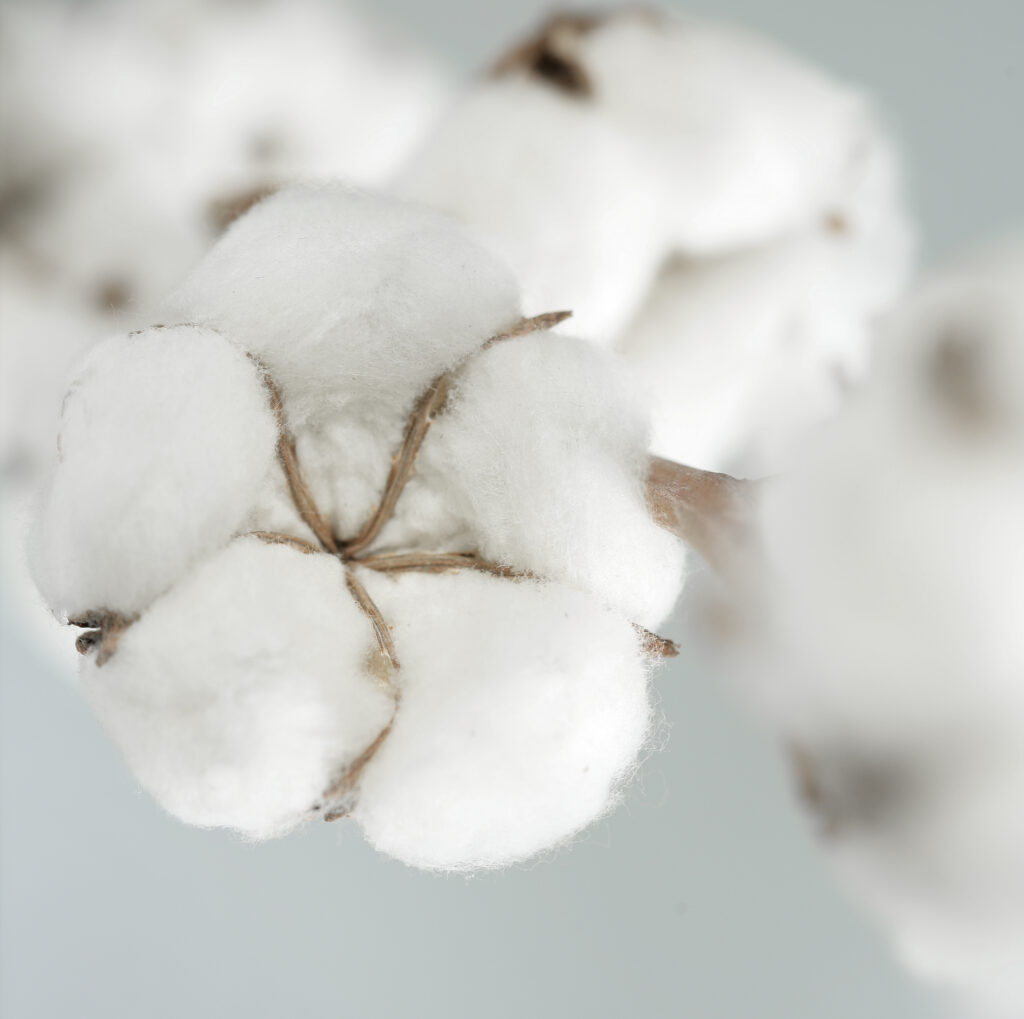Though “biodegradable” is a widely used term, there are many misconceptions about what it actually means. First, let’s start with the basics: biodegradability refers to the chemical dissolution of materials by bacteria or other biological means. Here’s another way to approach this concept: nature can biodegrade everything it makes back to its basic building blocks. Now, let’s answer a few questions as it pertains to fibers:
So Is Cotton Biodegradable?
Since cotton is made by nature, it can be biodegraded by nature. And biodegrading cotton to the original building blocks that nature used to create it makes these building blocks available to create new living things.
Are Synthetic Fibers Biodegradable?
Oil-based synthetic fibers such as polyester, polypropylene, nylon, and polyethylene are man-made fibers that use combinations of elements that do not exist in nature. So—as you might’ve already guessed—nature has no corresponding microorganisms to break them down. That was a longer way of saying: “No, synthetic fibers aren’t biodegradable.”
Biodegradable and Compostable Mean the Same Thing, Right?
Though “biodegradable” is often interchanged with “compostable,” they do not have the same meaning. Being biodegradable means the material can be degraded by microorganisms, while being compostable specifies that the object be biodegraded (broken down) in a compost heap (soil).
How Long Does It Take for Cotton to Degrade?
It depends. Cotton is biodegradable both anaerobically (without oxygen) and aerobically (with oxygen). Modern landfills are sealed and keep out water and oxygen, making them anaerobic. Cotton will degrade under these conditions but much more slowly than in aerobic conditions, or in a compost heap.
Okay. So Which Fiber Is Better for the Environment?
Most of the single-use disposable products used today (diapers, wipes, feminine hygiene products, etc.) are made using oil-based synthetic fibers or films that will not biodegrade (aerobically or anaerobically), which means they are not compostable. And since they are made to be used once and then tossed, there are a lot of these in the waste stream. This, obviously, isn’t good for the environment.
So You’re Saying Cotton is a Better Choice?
You got it. Products made with cotton are biodegradable and compostable. While the speed that cotton degrades depends on the environmental conditions (amount of oxygen, water, temperature, pH, etc.) and construction of the fabric (weight, how tightly the fibers are packed together, etc.), at least we know it will degrade over time, and not remain in the waste stream.
Where Can I Learn More About Cotton and Sustainability?
We’d love for you to check out the page we have dedicated to this on our website. You can also visit Cotton Incorporated and Cotton Leads; these are both excellent resources.
